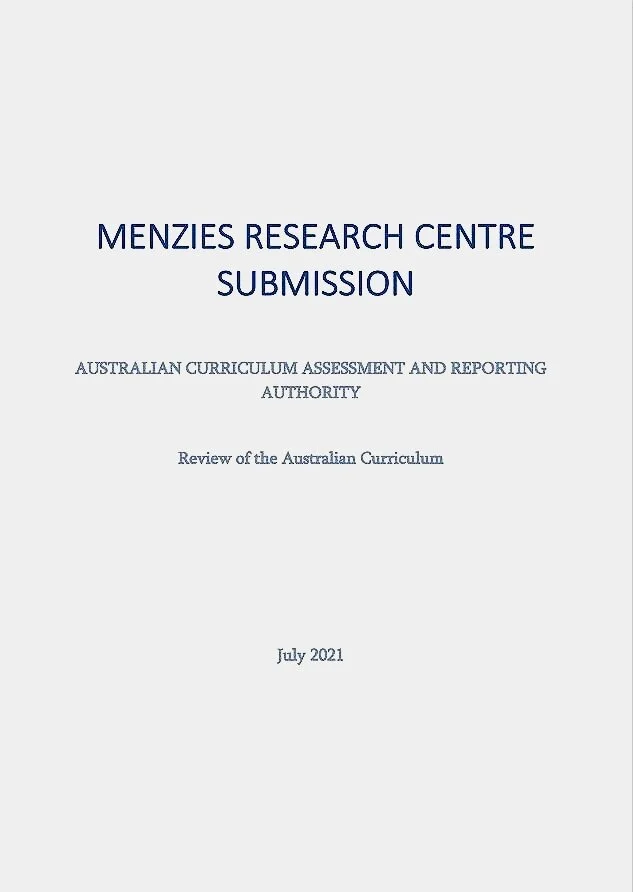MRC Reports and Submissions
The Great Regression: How Unions and the Government have changed the rules from Accord to central control
The MRC makes a Submission to the Australian Government's consultation process on AI regulation.
Australia has the highest proportion of international students of any large developed country.
The MRC advocates for early access to superannuation for first home buyers in a submission to a Senate Inquiry.
SOS - Strengthening Online Safety: Empowering Australian Parents to Keep Their Children Safe Online
This MRC submission argues that the notion of a national curriculum is conceptually flawed and that the Australian Curriculum has structural flaws, many of which are impossible to fix in its current form.
This submission makes a number of recommendations to strengthen oversight of judges and to help maintain public confidence that the judiciary are making decisions free of bias.
Litigation Nation: How Australia has become an investment destination at the expense of justice






























